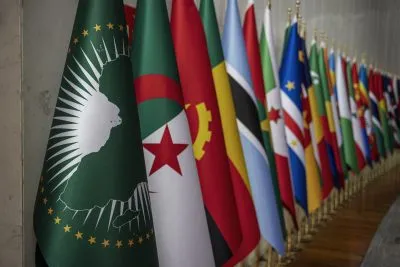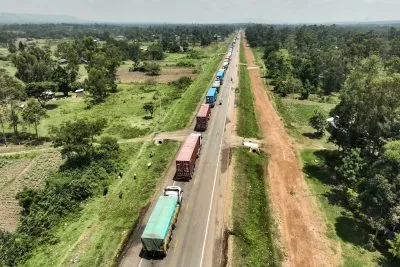This article was produced with the support of CR2
Since the launch of the Amole Digital Wallet in Ethiopia in July 2018, spearheaded by Ethiopia-based Fintech Moneta Technologies and Dashen Bank, underpinned by CR2’s Digital Banking Platform, Dashen Bank has transformed its digital customer base by a phenomenal 4,000%, accelerated customer acquisition, enhanced its liquidity position and is now deeply embedded in the daily spending habits of millions of Ethiopians.
The word ‘amole’ comes from the 16th-century bars-of-salt money first introduced by the Amole tribe of Ethiopia. The Amole Digital Wallet is thus integrated into the rich history of one of the world’s oldest civilisations.
Prior to the launch of the Amole Digital Wallet, mobile money operators and banks offered very limited services – transactions still needed to be completed in person and using cash and there was no integration between bank accounts and wallets.
A roaring success
The introduction of Amole has proved to be a roaring success. By December 2020, over 2m customers had been registered on the platform, representing a significant boost to Dashen’s digital customer base, which was just 50,000 when the project started.
Amole is certainly playing a significant role in moving Ethiopia to a cashless society, with the digital payment platform already surpassing the number of card transactions in retail environments, and accounts for over 50% of DStv payments across the country.
The very rapid take-up of the wallet is a clear indication that it was a digital revolution waiting to happen in what is clearly evolving into a prime market.
With a population of 117m, Ethiopia is the second most populous country in Africa (after Nigeria), with 70% under 25 years of age, many of whom are economically active. It is the fastest-growing economy in Africa and within the top five in the world. It has 50.7m mobile subscribers, 18.5m (and accelerating) using smartphones. However, the country is traditionally a cash-based economy with only 24% banked.
These are ripe conditions to roll out more advanced fintech and provide customers with unprecedented levels of convenience and increase their reach and scope in terms of transactions.
While some banks saw fintechs as a threat to their traditional positions within the banking landscape, Dashen Bank saw the enormous range of possibilities they offered and opted for a partnership approach.
Success factors
Led by fintech visionaries Moneta Technologies they executed a strategy to build a rich ecosystem that embeds digital banking within the daily lives of Ethiopians today. Co-operation and collaboration is a key tenet of their success, they say.
Moneta developed the Amole wallet and selected CR2 to provide omnichannel access for all users – via USSD, mobile app and Internet channels. The choice of CR2 was based on its proven success in the African banking market, its reputation for delivering projects quickly and on time and its market-leading digital banking platform that could provide a range of banking channels. Additional channels available include a social media app, merchant and agency app, and mPOS (mobile point-of-sale) facilities.
CR2 provides banks with digital, self-service and payments solutions to help them grow their business, optimise their customer service cost and deliver an enhanced customer experience. The company has gained a well-deserved reputation for their swift launch timeframes, with onsite and remote implementation options.
“We enable banks to quickly adapt and flexibly roll out new services, which is critical in today’s Covid-19 environment,” a spokesperson for CR2 said.
One of the most significant strengths of their BankWorld Digital Banking Platform is its flexible integration framework that allows it to be used in any environment, with proven compatability with a very wide number of existing core and middleware systems, ensuring a swift and rapid deployment, backed by their highly knowledgeable and experienced professional services team.
With a laser focus on increasing the volume and breadth of daily transactions, coupled with increasing the stickiness of the services available, Moneta was able to quickly lay the foundations to build a rich ecosystem on an open platform, integrating over 50 external products and services, supported by 8,000 merchants and seamlessly integrated with Dashen Bank’s existing digital banking channel.
Among other organisations, Dashen leveraged the Ethiopian Postal Service, Hidasie Telecom and Total Ethiopia as well as its 450 branches and a network of 1,800 agents nationwide to help with the acceptance of Amole, Cash-in, Cash-out and sales of digital content based on the use of QR codes. The bank built a platform that processed bill presentation and payment with the ability to scale up in order to process high volumes of transactions.
A key aspect behind the success of the digital wallet has been the combination of offering relevant products, and the ease of use and convenience when it comes to services such as paying school fees, making retail payments, government payments, conducting e-commerce, and buying airline tickets (Ethiopian Airlines) concert tickets, taxi services, mobile top-ups, DStv subscriptions and so on. The solution also provides an easy onboarding process, allowing users to access a range of channels.
There have been several factors behind the phenomenal success of the Amole Digital Wallet. In addition to correctly identifying a gaping need in the market, Dashen’s collaboration with its key fintech partners has been exceptional.
Dashen Bank and Moneta Technologies fostered a strong partnership with a common goal and worked steadily to reach it. With the omnichannel approach offering a frictionless experience delivered by CR2’s BankWorld Digital Banking Platform, millions of customers are accessing the wallet in an omnichannel way. Amole is the only digital wallet in Ethiopia to offer a truly omnichannel wallet – Dashen digital banking users can seamlessly move between their digital banking service and the digital wallet.
Dashen and Moneta did not confine themselves to a sole P2P strategy for digital payments. Instead, Moneta developed an open platform that offered relevant and sticky services aimed at facilitating all the transactions of Ethiopians as they go about their daily life: purchasing their morning coffee, getting their taxi to work, buying their lunch, paying for groceries in the supermarket, paying school fees or accessing any of the government services available in the platform integrated to EthSwitch, the national switch.
The rollout of the service is reinforced by the use of analytics and a range of marketing efforts that bring the customer into the platform in a frictionless way. Amole is the only digital wallet in Ethiopia with full KYC to offer self-service registration.
Unique offering
Amole is a complete digital process. All products and services purchased using the wallet are completed as end-to-end digital processes. This is a unique offering in Ethiopia. Other digital wallets require cash payment at bank branches for products or service.
The service offers an optimal user experience to encourage engagement and customer retention, which in turn helps to forge a reputation for customer experience and excellence for the bank. It also offers a broad range of payment and money transfer capabilities including person-to-person (P2P), QR code, card payments (gift, prepaid) and more.
Recently, one of Africa’s fintech unicorns, Flutterwave, set up a partnership with Amole to enable Ethiopians in the diaspora to send remittances instantly to those with bank accounts, Amole wallets and cash pick-up points. Despite the pandemic, an estimated $5bn per year is sent back home by Ethiopians in the diaspora.
Amole, like its ancient predecessor did, is rapidly changing the way Ethiopians are conducting their daily transactions by modernising the process and eliminating the drudgery of the past. It is a modern system for a modern, young Ethiopia and it could not have come at a better time.
If you would like to learn more, please visit www.cr2.com
 Sign in with Google
Sign in with Google 



